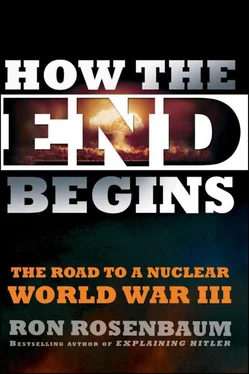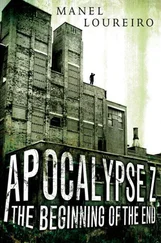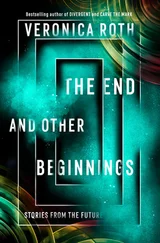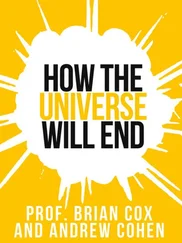“That’s a very interesting question,” he said, “and if you contemplate the question you must face some vision of what the world order would look like after a nuclear attack. And whether it mattered.” [118]
Fascinating, ambiguity again.
“But the other thing you have to be cautious about when discussing a philosophical or, truly, hypothetical, question is that you don’t send a mixed signal that would confuse anybody about your intention. Your will.”
In other words to talk about whether we will, or should, retaliate is to invite a foe to think there’s a chance we won’t and thus make an attack more likely.
“So it’s a terrible paradox,” I said.
“It is. It is a paradox. You’re exactly right. It’s a moral one. I know that every president of the United States since we invented this massive retaliation capability, has lost sleep over this.”
“Have you?”
“Um.” He laughed. “Not till I got this job.”
There was so much contained in his remarks: The use of “massive retaliation” is not a fashionable term anymore, but it tripped off his tongue. He conceded it was a moral question. He hinted retaliation might not be automatic. He warned about the paradox.
He said both he and the president lose sleep over this choice.
And that’s not the only reason to lose sleep.
Does “the number” change things—the number of those who will die in a nuclear war? Does a greater magnitude of mortality entail a different mode of morality (or immorality)? It was sometime in 1961 that Daniel Ellsberg, then an attaché in John F. Kennedy’s Defense Department, asked the Joint Chiefs of Staff a forbidden question: how many would die in a nuclear war under the current nuclear war plan? [119]
The answer he got still haunts him nearly a half-century later; it was to be a focus of our breakfast meeting in New York in September 2009. Ellsberg had looked me up on a visit to New York. He had a question to ask me about the spoon-and-string maneuver. He wanted to talk about command and control issues. He was a command and control aficionado. He had been there on the ground floor of command and control of nukes planning. Now he had newly declassified documents about predelegation to discuss. As always he was obsessed.
Ellsberg is the man made famous, of course, for leaking the Pentagon Papers to the New York Times in order to expose the deceitful, secret behavior of two successive Democratic administrations that led us into Vietnam. He was in New York for the premiere of a documentary on his life called The Most Dangerous Man in America. The title “Most Dangerous Man” came from the words Henry Kissinger spoke to Richard Nixon in the White House shortly after Ellsberg had been exposed as the source of the Pentagon Papers. [120]The documentary uses Kissinger’s quote somewhat opportunistically since the film focuses mainly on the Pentagon Papers and elides over the likelihood that Kissinger did not call Ellsberg “the most dangerous man” because of the Pentagon Papers leak. The papers were already out and they mostly implicated the opposition party. He used the phrase for another kind of secret, a more dangerous one. The danger Kissinger was speaking of, the danger that led Nixon to risk and lose the presidency because he gave his blessing to a break-in at Ellsberg’s psychiatrist’s office and lied about it—was something else. Something that few knew about Ellsberg at the time: his nuclear past.
Few aside from Nixon and Kissinger knew, in fact, how close Ellsberg had been to the most secret of nuclear war secrets, and how easily he could have spilled them. [121]Ellsberg knew or had known America’s “above-top-secret,” super-classified nuclear war plans—and he had been the first person to seek out the Number.
When I met Ellsberg for that breakfast in 2009, he was bearing his armload of declassified documents and he still seemed to be bearing, even more burdensomely, the guilt of a penitent.
He was spending a lot of time uploading hundreds of these documents to his Web site, all the while writing new installments of a memoir on the fly, running as if time were running out, for him and for us.
At seventy-eight, his metabolism was certainly in high gear. We met in the bleak and chilly concrete courtyard “garden” of the Wyndham Garden Hotel, a budget tour-group destination in a warehouse neighborhood near Penn Station where he was staying with his wife, Patricia. Ellsberg had piled his plate high from the breakfast buffet and was devouring a mountain of eggs, bacon, sausages, fried potatoes, waffles, the works, although he’s thin as a wire and just as electrified. If no longer the Most Dangerous Man in America, he may be the hungriest.
Indeed hunger is the word. Ellsberg seems a haunted man, hungry for something more than food, with the burning eyes of a heretic priest, dark circles under them the only signs of exhaustion. He is hungry more than anything for penitence, to exorcise his guilt, his sense of complicity in plans for genocide. His conscience, anyway his feeling of guilt, is his shirt of Nessus, the mythical garment that was a gift to Hercules but which when donned burst into unquenchable flame and adhered to his back until the agony caused Hercules to immolate himself on a funeral pyre. I’ve often thought of the black briefcase nuclear football as the president’s shirt of Nessus, the way it adheres to him every moment of his life in office. For Ellsberg his shirt of Nessus is his ineradicable nuclear past.
Ellsberg feels the fire. He’s wired with intensity, from his gray curls to his spring-trap mind. I would call it electricity but it’s more like radioactivity.
In fact, before he became an antiwar dissident Ellsberg had been the very model of a rising young Strangelove. He had studied nuclear strategy at Harvard under the Yoda of nuclear strategists, Thomas Schelling. [122]This is no small matter. Ellsberg was—and still is—awed by Schelling’s brilliance. He was seduced by the strategists, the so-called Wizards of Armageddon who introduced “scientific” game theory to nuclear war strategy and locked us into its logic. [123]Schelling is credited with developing the use of “calculated irrationality” in nuclear war game theory. [124]The History News Web site quotes Tyler Cowen, one of Schelling’s former students at Harvard, who explained Schelling’s irrational-behavior theory relative to nuclear deterrence this way: “Ever see Dr. Strangelove? Tom [Schelling] developed the idea that deterrence is never fully credible. (Why retaliate once you are wiped out?) The best deterrent might involve pre-commitment [e.g., the Doomsday Machine] some element of randomness, or a partly crazy leader [e.g., a madman such as General Ripper]. I recall Tom telling me he was briefly an advisor to Kubrick.” Fascinating, the master strategist’s parenthetical dismissal of retaliation!
After Harvard, and after serving in the Marines, Ellsberg put his war game training in the service of the RAND Corporation, the legendary Santa Monica–based nuclear war think tank, then a Pentagon-financed entity. He was the prototype of the civilian nuclear strategist, a “defense intellectual” who helped provide the flyboys of the Air Force with the intellectual heft they needed to muscle their way into control over most nukes in the early 1960s, and give the Air Force’s nukes, intercontinental missiles based in underground silos, primacy in the American arsenal over the ones loaded on submarines. The Air Force victory in making land-based missiles the heart of our nuclear strike force was one of the worst, most dangerous decisions of the first nuclear age: it created a vast apparatus of highly vulnerable, hair-trigger lethality beneath the badlands of the U.S. and the steppes of the U.S.S.R. [125]
Читать дальше











